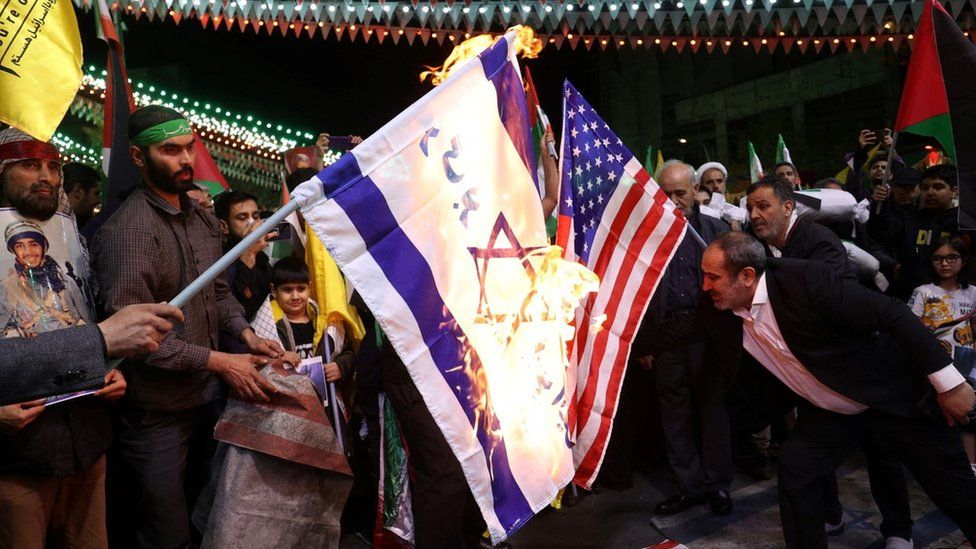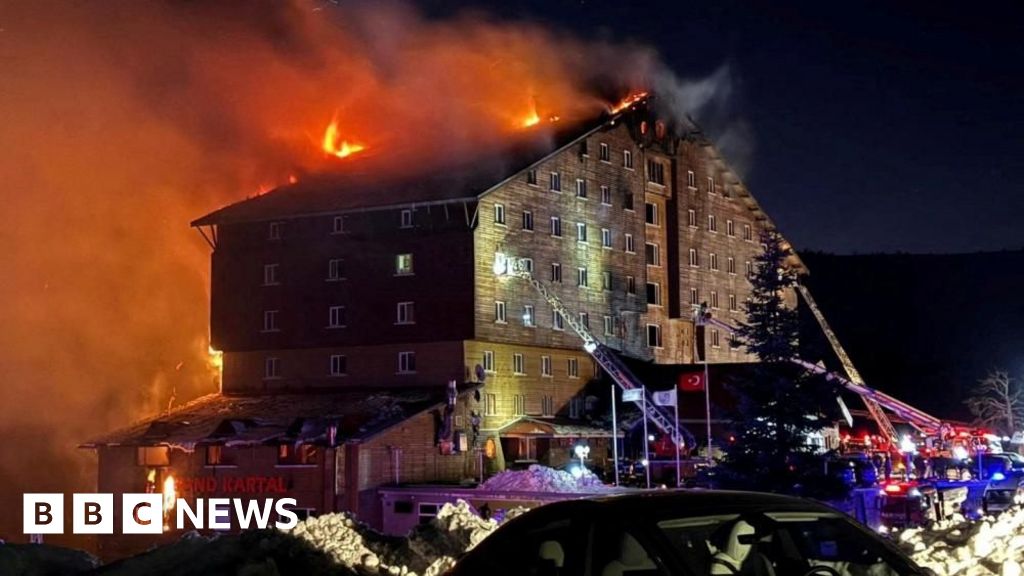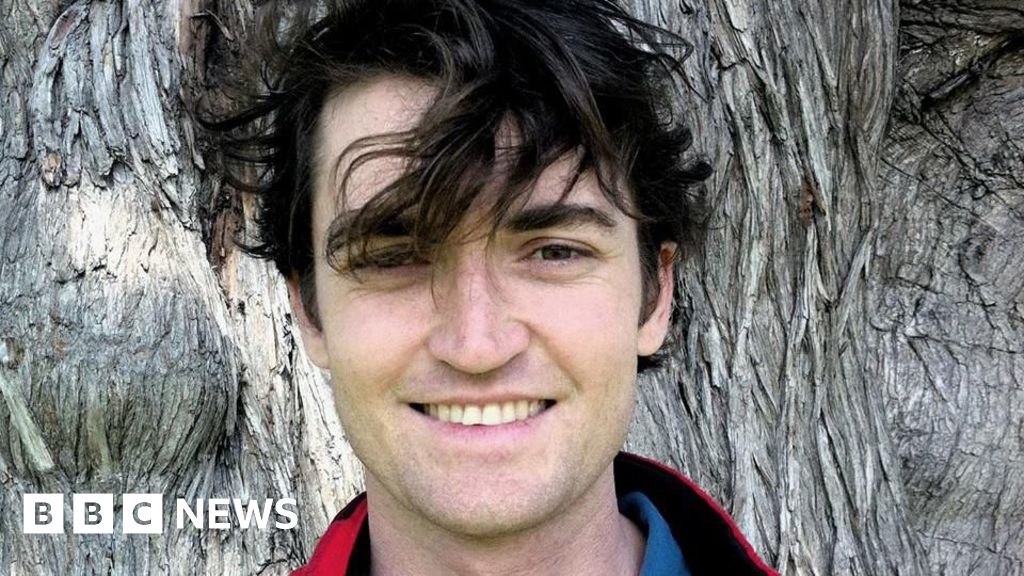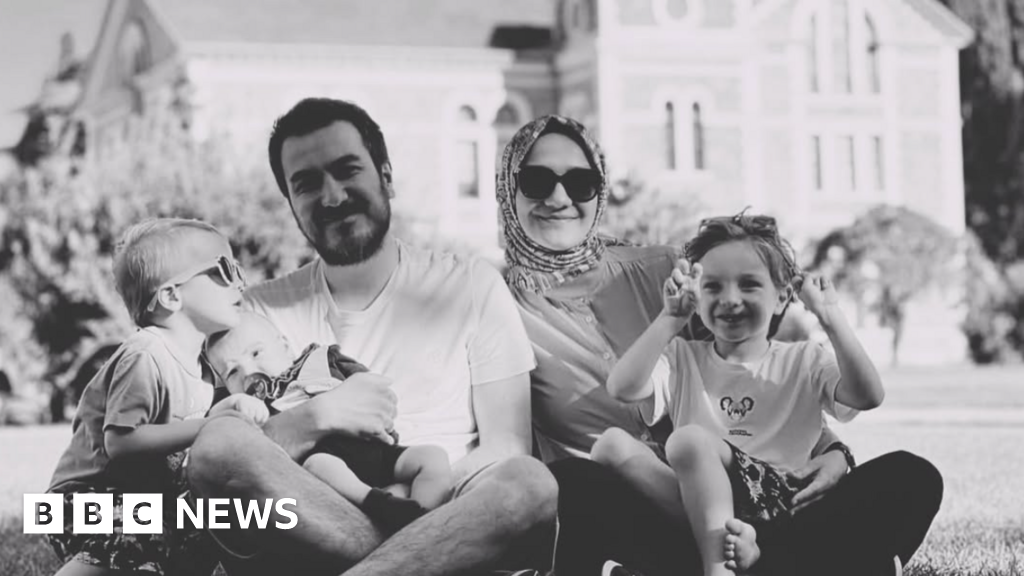ARTICLE AD BOX
 Image source, Reuters
Image source, Reuters
People burned Israeli and US flags at a protest in Tehran on Monday night, hours after the deadly strike in Syria
Iran has vowed to respond to what it said was an Israeli strike on Monday that destroyed an Iranian consulate building in Syria's capital, Damascus.
Supreme Leader Ayatollah Ali Khamenei said Israel would "regret this crime", while President Ebrahim Raisi insisted that it would "not go unanswered".
Iranian state TV reported that seven Revolutionary Guards, including two generals, and six Syrians were killed.
The Israeli military said it did not comment on foreign media reports.
But an unnamed senior Israeli government official told Reuters news agency that those killed had "been behind many attacks on Israeli and American assets and had plans for additional attacks". They also insisted that the embassy "was not a target".
The New York Times also cited four Israeli officials as confirming that Israel had carried out the strike but denying the building had diplomatic status.
Israel has acknowledged carrying out hundreds of strikes in recent years on targets in Syria that it says are linked to Iran and allied armed groups which are armed, funded and trained by the Revolutionary Guards.
The strikes have reportedly been stepped up since the start of the war in Gaza in October last year, in response to cross-border attacks on northern Israel by Hezbollah and other Iran-backed groups in Lebanon and Syria.
Iran has so far avoided direct confrontation with Israel during the conflict, but Monday's attack is seen as a serious escalation.
Iranian consulate in Syria destroyed following deadly air strike.
On Tuesday, Iran's president said the Revolutionary Guards commanders had been in Syria "as senior advisers in defending the holy shrine" - an apparent reference to a revered site on the outskirts of Damascus believed to house the tomb of Sayyida Zeinab, the daughter of the first Shia Muslim imam.
"Having failed to destroy the will of the resistance front, the Zionist regime [Israel] has put blind assassinations back on its agenda to save itself," Mr Raisi added. "It must know that it will never achieve its goals and that this cowardly crime will not go unanswered."
Later, Iran's supreme leader also vowed to avenge the Revolutionary Guards' deaths, which he described as a "heavy loss" for his country.
"The evil regime will be punished by the hands of our brave men. We will make them regret this crime and others like it," Ayatollah Khamenei said.
Iran's mission to the United Nations in New York also said the strike constituted a "flagrant violation of the United Nations Charter, international law, and the foundational principle of the inviolability of diplomatic and consular premises".
One of Ayatollah Khamenei's advisers, Ali Shamkhani, meanwhile claimed that US "remains directly responsible, whether or not it was aware of the intention to carry out this attack".
US National Security Council spokeswoman Adrienne Watson said it "had no involvement in the strike" and "did not know about it ahead of time".
Syria's defence ministry said Israeli aircraft launched missiles at the Iranian consulate building, which was located next door to the Iranian embassy on a highway in the western Mezzeh district of Damascus, from the occupied Golan Heights on Monday afternoon.
The entire building was destroyed, "killing and injuring everyone inside", it added, without providing further details.
Iran's ambassador, Hossein Akbari, said the strike was carried out by Israeli F-35 fighter jets and "targeted my place of residence and the consular section of the embassy, along with Iran's military attaches".
On Monday evening, Iran's Revolutionary Guards put out a statement saying that seven of its officers were killed, including Brig-Gen Mohammad Reza Zahedi and Brig-Gen Mohammad Hadi Haji-Rahimi.
Iranian media said Zahedi, 63, was a senior figure in the Quds Force - the Revolutionary Guards' overseas operations arm - and served as commander in Lebanon and Syria between 2008 and 2016. Haji-Rahimi was meanwhile identified as Zahedi's deputy.
Zahedi is one of the most high-profile Iranian figures believed to have been killed by Israel in the country's long campaign of targeted assassinations.
On Tuesday, Iranian state TV reported that the death toll had risen to 13, with six Syrian nationals killed along with the Revolutionary Guards.
The Syrian Observatory for Human Rights, a UK-based monitoring group, reported that 11 members of Iran's so-called "Axis of Resistance" were killed. They comprised eight Iranians, including seven commanders, two Syrians and one Lebanese national, it said.
Lebanese security sources also told Reuters that one member of Lebanon's Iran-backed Hezbollah movement was killed.
Last week, suspected Israeli strikes on Damascus and the northern city of Aleppo reportedly killed 53 people, including 38 Syrian soldiers and seven members of the Iran-backed Lebanese armed group Hezbollah.
Iran has said Revolutionary Guards have been sent to Syria to "advise" President Bashar al-Assad's forces in the country's civil war, but it has denied they have been involved in combat or established bases.

 9 months ago
37
9 months ago
37








 English (US) ·
English (US) ·